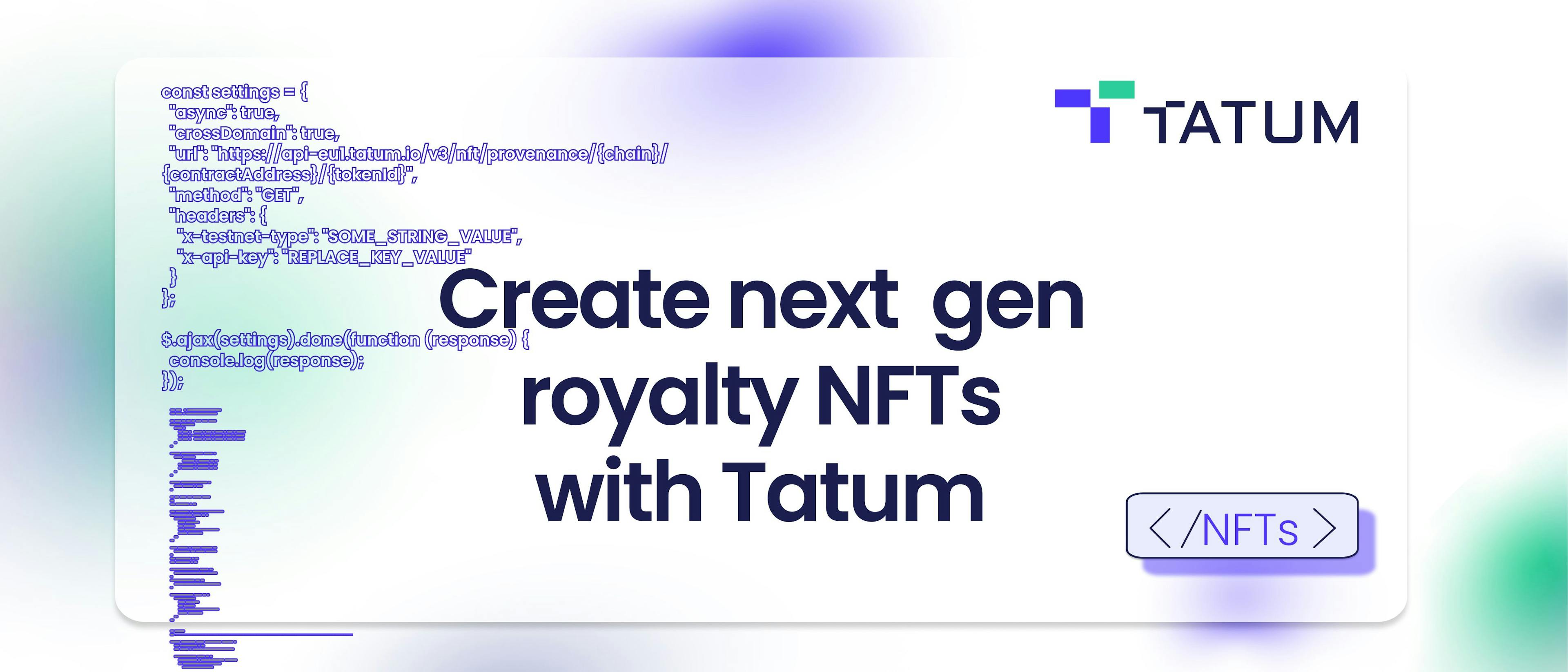6,587 reads
Enable Customized Royalties For NFTs With Multiple Creators, ERC20 Payout, and More, with Tatum
by
December 22nd, 2021
Audio Presented by

Build everything from crypto exchanges to NFT marketplaces on 40+ blockchains with no previous blockchain experience.
About Author
Build everything from crypto exchanges to NFT marketplaces on 40+ blockchains with no previous blockchain experience.
